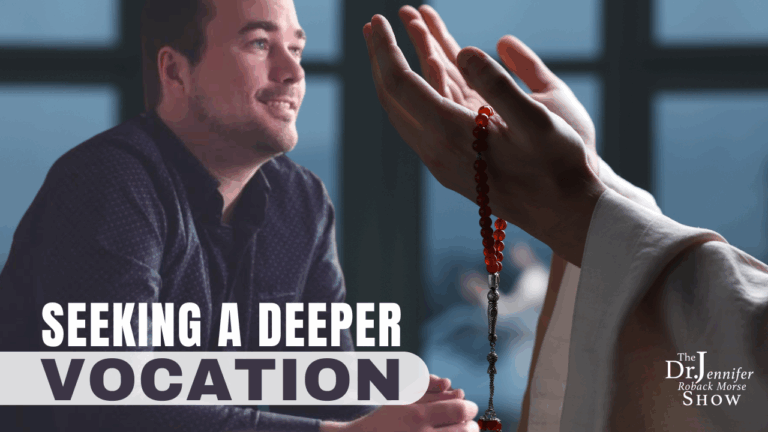The Ruth Institute’s conference explores the tragic effects of an “anything goes” culture.
by Kathy Schiffer, July 25, 2020, at NCRegister.com.
It was sometime around the mid-1960s that the sexual revolution really got underway; and in the ensuing decades, “free sex” – that is, sex without restrictions
and without consequences – gained momentum in American culture. The introduction of the birth control pill effectively separated sexual intercourse
from its expected result, pregnancy. No-fault divorce, sex outside of marriage, legalized abortion, promiscuity and the hook-up culture, infidelity
and bigamy and polygamy, the emergence of “throuples”… inevitably led to a trifecta of sexual aberrations: pornography, homosexuality, and transgenderism.
But despite the mainstream media’s embrace of alternative lifestyles, lots of people (a majority of people?) resist the assault on traditional morality.
Over at the Ruth Institute, a global interfaith coalition, founder Jennifer Roback Morse, Ph.D. has given a voice to those who appreciate the beauty
of human sexuality as God intended, and who recognize the depravity inherent in society’s relaxation of sexual norms.
On July 17-18, the Ruth Institute presented its third annual Summit for Survivors of the Sexual Revolution, intended to educate the public about the millions
of lives damaged by society’s abandonment of sexual mores. The event was originally planned as a live conference onsite in Lake Charles, Louisiana;
but because of the coronavirus, the conference was changed to a hybrid event, with both in-person participation and online involvement. Morse explained
to the Register, “None of the evils we confronted – pornography, sexual abuse, gender confusion, coercive population control and dramatically falling
fertility – are going to call a time-out for a pandemic.”
The Register talked with Jennifer Roback Morse about the agenda for the Summit. Unlike other conferences, she explained, this event did not rely exclusively
on presentations of well-known speakers. Rather, the Summit for Survivors of the Sexual Revolution brought together people who had suffered personally
as a result of a sexually permissive society. “This is not a harmless ploy,” Morse said.
…It’s a form of ideological terror that has killed a lot of people in the last fifty years. So the more we use the phraseology, the more we speak openly
about how our culture has been hurt by these ideas, the more we help to identify people who have had their lives destroyed by this ideology.
Among the speakers who had personally suffered as a result of the LGBT subculture were Doug Mainwaring, a journalist who had left the
homosexual lifestyle; Luis Ruiz, a survivor of the Pulse Nightclub massacre in Orlando, who left the LGBT lifestyle after that terrifying
experience; and Lynn Meagher, a mother whose two gender-confused adult children have severed their relationship with her, leaving
her to wonder where they are and to pray for their return to faith.
A panel on the transgender movement included parents of gender-confused children, desisters (people who lived as the opposite sex and gave it up), and
resisters within the medical community. Survivors of childhood sexual abuse reported on their own experiences. Another panel featured three speakers:
Faith Hakesly and Allen Hebert, who were themselves survivors of childhood abuse, and Sue Ellen Browder,
the spouse of a survivor. And a third panel brought together three activists: Tracy Shannon, representing Mass Resistance of Texas;
Thomas Drake of Tradition, Family, Property (TFP); and Cathy Cleaver Ruse, senior fellow at the Family Research Council,
who was recognized for her work exposing and resisting the Fairfax County School Board.
Besides the “experience speakers,” those whose testimonies reveal the deep hurt caused by the sexual revolution, the Summit included the wise advice of
experts. Fr. Paul Sullins, Ph.D. is a former professor of sociology at The Catholic University of America, where he was a leader in
the field of research on same-sex parenting and its implications for child development. Father Sullins, now a senior research associate of the Ruth
Institute, spoke about the clergy abuse crisis, looking at past statistics and future trends. Melea Stephens, a licensed professional
counselor who specializes in helping couples, explained how pornography has become a public health crisis, and focused on public policies which could
help alleviate the problem. Chris McKenna, founder and CEO of Protect Young Eyes, introduced
tools for parents and other educators which can help to protect children from exposure to pornography.
Intensive Leadership Training for Ruth Institute’s “Ambassadors”
A new feature of the conference this year was the Ambassador’s Training Program. That program, which was offered by invitation only, included presentations
on Understanding the Global Sexual Revolution: Christian Anthropology, History and Social Systems, presented by Dr. Jennifer Roback Morse;
Medical Tragedies of the Sexual Revolution, a review of traditional Christian sexuality morality, as presented by Michelle Cretella, M.D.;
Social Science Evidence, including issues such as post-abortion trauma, same-sex parenting, and children’s needs for their parents, presented by Fr. Paul Sullins;
and Human Rights Catastrophes of the Sexual Revolution (including population control and demographic winter), presented by Don Feder,
a journalist and communications director for the World Congress of Families.
If you were unable to participate in the conference either online or in person, Dr. Morse reassured the Register that recordings from the Summit will be
available online in the near future. You can learn more about those recordings and about the Ruth Institute’s other resources at the website, ruthinstitute.org.



